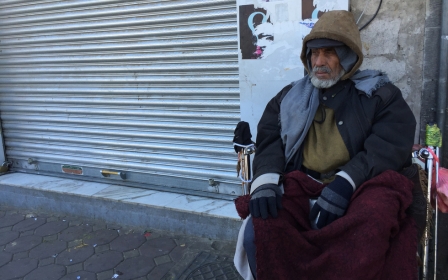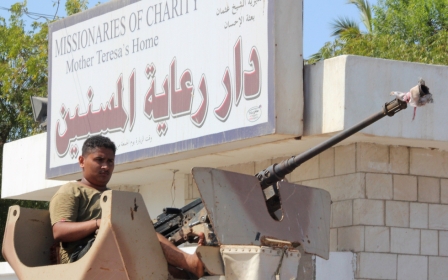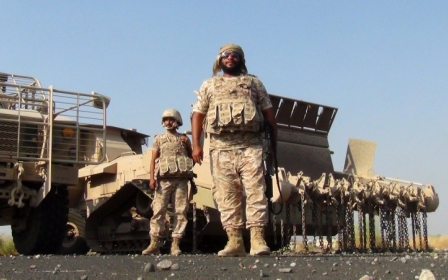Hospital rumours add to speculation over Saleh's future in Yemen

A Yemeni source close to President Abd Rabbuh Mansour Hadi has told Middle East Eye that former president Ali Abdullah Saleh is in hospital and seeking to negotiate an exit from the country to the United Arab Emirates for himself and his family.
But sources close to Saleh, who was toppled from power in 2012 but is currently in Sanaa, the Houthi-rebel-held capital, said he had no intention of leaving.
Saleh's close links to the Houthis, who overran Sanaa and forced Hadi into temporary exile in 2015, and the UAE's involvement in the Saudi Arabia-led coalition currently fighting on the ground and conducting air strikes against Houthi rebels in Yemen, render the unusual contacts highly sensitive.
But a source told MEE that Saleh was in communication with Emirati officials about a possible departure.
One possible avenue for communications could be Saleh's son Ahmed Ali who was appointed ambassador for Yemen to the UAE shortly after his father was toppled.
Although no longer the country's ambassador, he has remained resident there ever since.
Soldiers loyal to Saleh have played a key role in Yemen's civil war since late 2014 fighting alongside Houthi militias.
The alleged contact between Saleh and the UAE comes amid speculation concerning an impending ground offensive in northern Yemen by Yemeni forces backed by Saudi Arabia and the UAE.
The offensive is expected to be led by General Ali Mohsen, who Hadi recently appointed as deputy commander of the Yemeni armed forces and who orchestrated Saleh's removal from power.
But two members of Saleh's General People's Congress (GPC) party played down speculation about Saleh's future and said he had no intention of fleeing the country.
Speaking on condition of anonymity, one of them told MEE: "He certainly has heart problems and is under a lot of pressure from the Saudis and the Islah party [the Muslim Brotherhood party in Yemen], but at the moment the appointment of Mohsen is his main concern and he will not allow him to replace him."
Saleh, who became president of the Yemen Arab Republic in 1978 and of Yemen from its unification in 1990 until 2012, remains an influential figure within Yemen's security forces.
More than 8,000 people have been killed in Yemen since the Saudi-led coalition began air strikes in late March last year.
The United Nations is pushing for peace talks between the Hadi's government and the Houthi militias and their allies, but those efforts remain deadlocked over disagreements on a ceasefire.
New MEE newsletter: Jerusalem Dispatch
Sign up to get the latest insights and analysis on Israel-Palestine, alongside Turkey Unpacked and other MEE newsletters
Middle East Eye delivers independent and unrivalled coverage and analysis of the Middle East, North Africa and beyond. To learn more about republishing this content and the associated fees, please fill out this form. More about MEE can be found here.




